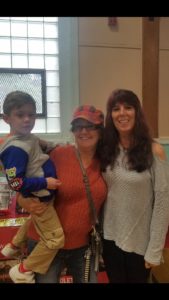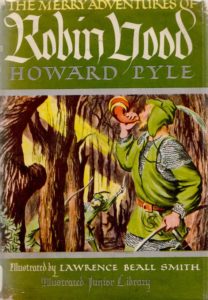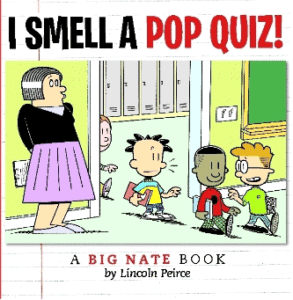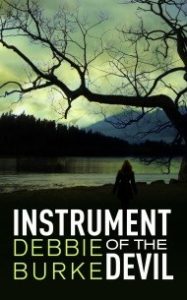by James Scott Bell
@jamesscottbell
 Today’s first-page critique gives us an opportunity to cover the most important large-scale issue every new writer needs to understand before setting out to write a novel. I’ll explain after we read our submission.
Today’s first-page critique gives us an opportunity to cover the most important large-scale issue every new writer needs to understand before setting out to write a novel. I’ll explain after we read our submission.
Appointment in Moscow
Chapter 1 – Covert Landing
Her code name was Mayflower and her mission was to crack the vault at the White House. It would have been a dangerous assignment for anyone, much less a neophyte with no formal training in espionage, but Mayflower’s handlers in Moscow had seen to it that she was briefed, photographed, fingerprinted, outfitted, inoculated, weighed, coiffed and for good measure given a palm reading by a politically reliable seer. All that aside, her late husband, Frederick, had been a career intelligence officer and she had picked up a good bit of tradecraft from him. Her confidence was high.
Mayflower had arrived in New York yesterday from Russia on a passenger liner out of neutral Norway, a voyage fraught with storms, U-boat scares and truly awful food at the captain’s table. She felt better now as she stepped down off the train into Union Station in Washington, a place that brought back fond memories of when she and Freddie had lived in the capital. This was the fourth year of what the press was calling the World War, and the platform was packed with military police and railroad officials frantically trying to maintain order. People were running, shoving, shouting, arguing, pleading. Names were called out over the loudspeakers as babies squalled, kids tap-danced for pennies, a Four-Minute Man gave a victory speech, and a man wearing a dusty black suit and a dirty white clerical collar staggered through the crowd warning that the end was near.
“Bible, lady?” he said, breathing whisky fumes on her. “It’s 1918 already and Armageddon is coming. Read all about it. Only six bits.”
Mayflower took a Bible from the box under his arm and handed him a dollar bill. “Come with me, I need your help,” she told him. “And please hold the sermon. I’m a deist.”
“Disciples of Christ, myself,” he said. “At your service, ma’am.”
She took his arm and moved him in front of her as a shield and they started walking. When she was a young woman locked up in a Catholic boarding school she had learned a number of ways to sneak out late at night. She intended to use that experience and make a discreet exit here out a service door. But her plan was interrupted by two uniformed cops who directed the incoming passengers into a gauntlet of detectives and government agents holding wanted fliers. They looked everybody over, comparing faces with photos.
***
JSB: I’m not going to micro-critique this page, because there is one huge lesson the writer must take away from this, and that is how to distinguish between, and artfully use, the four modes of fiction. Once that is understood, the writer must then practice, practice. Indeed, this is going to be your task the rest of your writing life (as it is for all of us!)
What do I mean by the four modes of fiction? Just this: there are four ways to convey “story stuff” to the reader: scene, summary, exposition, and backstory. You need to know what each of these does, and when to use them.
Let’s define them first.
Scene is the action on the page. In movie terms, it would be what you see onscreen, and what you hear in dialogue. It’s the show part of show, don’t tell.
Summary is a narrative recounting of action in order to transition to another scene, or to cover a long period that would be too cumbersome to show. Thus, it’s the tell part of show, don’t tell. (There are other “tells” in fiction, but that’s another topic).
Exposition is story information delivered to the reader. Such information is usually about a setting (description, history, social life) or a character (description, skills, education).
Backstory is history relating to the characters or plot, something that happened before the novel begins. A flashback is all backstory, but sometimes backstory bits are dropped in as part of the narrative.
So here’s today’s question: Which mode should the novelist specialize in, especially in the opening pages?
**Jeopardy music**
If you said scene, you move on to the championship round. Readers want scenes. They will tolerate the other modes so long as they are in service to the scenes.
With that in mind, let’s unpack this page.
Her code name was Mayflower and her mission was to crack the vault at the White House. It would have been a dangerous assignment for anyone, much less a neophyte with no formal training in espionage, but Mayflower’s handlers in Moscow had seen to it that she was briefed, photographed, fingerprinted, outfitted, inoculated, weighed, coiffed and for good measure given a palm reading by a politically reliable seer. All that aside, her late husband, Frederick, had been a career intelligence officer and she had picked up a good bit of tradecraft from him. Her confidence was high.
[This paragraph is not a scene. It is all exposition and backstory. You, the author, are simply telling us these things. There is nothing happening “onscreen.” It is essential that you understand this. Here’s a tip: If you use the word had you are indicating backstory.]
Mayflower had arrived in New York yesterday from Russia on a passenger liner out of neutral Norway, a voyage fraught with storms, U-boat scares and truly awful food at the captain’s table.
[See that had? Backstory!]
She felt better now as she stepped down off the train into Union Station in Washington,
[This is the first bit of action, and the start of a scene]
a place that brought back fond memories of when she and Freddie had lived in the capital.
[Had! Backstory!]
This was the fourth year of what the press was calling the World War,
[Exposition. This is the author telling us the information.]
and the platform was packed with military police and railroad officials frantically trying to maintain order. People were running, shoving, shouting, arguing, pleading. Names were called out over the loudspeakers as babies squalled, kids tap-danced for pennies, a Four-Minute Man gave a victory speech, and a man wearing a dusty black suit and a dirty white clerical collar staggered through the crowd warning that the end was near.
[This is exposition in the form of description. Now, description is necessary to set a scene, but it’s more effective if you filter it through the point-of-view character. For example, have a running person bump into her. Have her ears hurt from the loudspeaker, etc.]
“Bible, lady?” he said, breathing whisky fumes on her. “It’s 1918 already and Armageddon is coming. Read all about it. Only six bits.”
[Scene! Dialogue between characters is always a scene. That’s why it’s perfectly acceptable to start a novel with dialogue. Indeed, this would be a good place to start this page. However, notice that exposition slipped into the dialogue. Would this guy really tell her it’s 1918? Everybody knows it’s 1918. Many new writers do this, especially in opening pages. They want the readers to know certain information, and try to “hide” it in the dialogue:
“Oh hello, Stan, my family doctor. Nice to see you.”
Here’s a simple solution. If, and only if, the exposition is essential, put it into more confrontational language:
“Bible, lady?”
“No, thank you.”
“Armageddon’s coming!”
“Excuse me.”
Mayflower tried to move past the man but he stepped in front of her.
“Save yourself,” he said. “The world ends before the year is out!”
“Tush.” She brushed past him, through the fog of his whiskey breath, and headed down the street.
“You’ll never see 1919!” he shouted. “And where will you spend eternity?”]
Mayflower took a Bible from the box under his arm and handed him a dollar bill. “Come with me, I need your help,” she told him. “And please hold the sermon. I’m a deist.”
“Disciples of Christ, myself,” he said. “At your service, ma’am.”
She took his arm and moved him in front of her as a shield and they started walking.
[Scene. The expositional dialogue “I’m a deist” is at least in a bit of confrontation.]
When she was a young woman locked up in a Catholic boarding school she had learned a number of ways to sneak out late at night.
[Had! Backstory.]
She intended to use that experience and make a discreet exit here out a service door. But her plan was interrupted by two uniformed cops who directed the incoming passengers into a gauntlet of detectives and government agents holding wanted fliers. They looked everybody over, comparing faces with photos.
[This is summary. You’re summarizing the action, not showing it to us on the page. Here’s the difference:
A cop put up his hand. “That’s far enough, lady.”
“Excuse me,” Mayflower said. “I’m not one of the—”
“We got orders,” the cop said.
He looked at some papers in his hand, one by one. Mayflower strained to see what they were. She caught a glimpse of face under big block lettering. A wanted poster?
The cop looked Mayflower in the eye. “Let’s see somethin’ with your name on it,” he said.]
From all this, draw the following lessons:
- Learn to identify in what mode of fiction you are writing at any given time. You can learn by analyzing other novels, page by page. Use four different colored highlighters. Teach yourself.
- Start your book with a scene.
- Filter exposition and description through the POV character. Here’s how Robert Crais opens Demolition Angel:
Charlie Riggio stared at the cardboard box sitting beside the Dumpster. It was a Jolly Green Giant box, with what appeared to be a crumpled brown paper bag sticking up through the top. The box was stamped Green Beans. Neither Riggio or the two uniformed officers with him approached closer than the corner of the strip mall there on Sunset Boulevard; they could see the box fine from where they were.
If you read on, you’ll see Crais majoring in scene (primarily through dialogue) with occasional exposition/description through Riggio’s eyes.
- Use backstory sparingly in the early pages. I have a little exercise I give new writers: three sentences of backstory in the first 2500 words, all together or spread out. Three paragraphs of backstory in the next 2500 words, all at once or spread out. This is not a “rule” but simply a way to practice and get disciplined about writing in scenes.
We are now open for comments.








